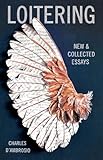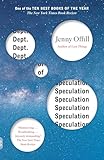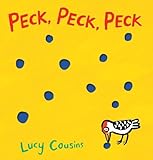After 74 entries, hundreds of books, and more additions to our reading list than we can count, sunset has come for our latest Year in Reading. The series was, if we can dispense with humility for a moment, a huge success, featuring more great essays written by more great authors than we’ll ever know what to do with. It also reminds us, as always, how thankful we are for our readers.
As for our contributors, this year’s roster was an eclectic bunch, including one Pulitzer Prize winner, two frontmen for popular bands, and all five National Book Award finalists, including this year’s winner. It included one novelist, Eimear McBride, whose debut earned high praise from James Wood just a couple of months ago. It also included our staff, which delivered, among other things, an awards ceremony in miniature and a poignant meditation on college life. It blew us away, in other words, and we’re just glad we can run something this wonderful, year in and year out.
Per a tradition started by our own Nick Moran (and partly inspired by our own Janet Potter), we’ll cap things off by handing out our own bespoke awards. If past years are any indication, these awards will immediately become very coveted, so if you happen to see one of the winners on the street, be sure to congratulate them profusely, or perhaps gaze upon them with a mixture of fear and awe.


 First up: high accolades are due for those books which our entrants consistently named among the best things they read this year. Top honors go to Dept. of Speculation by Jenny Offill, which got shout-outs from Eimear McBride, Jess Walter, Hannah Gersen, Rachel Fershleiser and Scott Cheshire. Leslie Jamison agreed with Scott Cheshire and Molly Antopol, respectively, in her choice of Marilynne Robinson’s Lila and Charles d’Ambrosio’s Loitering. Our own Emily St. John Mandel’s Station Eleven was popular, as well — Julia Fierro, Mark O’Connell and Bill Morris all named it one of their favorites. Each book will receive a Millions Year in Reading Circle Award.
First up: high accolades are due for those books which our entrants consistently named among the best things they read this year. Top honors go to Dept. of Speculation by Jenny Offill, which got shout-outs from Eimear McBride, Jess Walter, Hannah Gersen, Rachel Fershleiser and Scott Cheshire. Leslie Jamison agreed with Scott Cheshire and Molly Antopol, respectively, in her choice of Marilynne Robinson’s Lila and Charles d’Ambrosio’s Loitering. Our own Emily St. John Mandel’s Station Eleven was popular, as well — Julia Fierro, Mark O’Connell and Bill Morris all named it one of their favorites. Each book will receive a Millions Year in Reading Circle Award.
In the nonfiction category, The Favored Comrade Award for Interest in Russian History goes to Stephen Dodson, who delved into his enjoyment of Ivan Pavlov: A Russian Life in Science with a detailed aside about the motherland. In a long, comprehensive paragraph, he namechecked Peter the Great, Joseph Stalin, and Fyodor Dostoevsky, at one point describing how odd it is that Pavlov never received punishment for his criticism of Stalin’s regime. It’s a great introduction to the book’s topic, as is Nick Moran’s piece on Last Train to Paradise, which goes home (again) with a Golden Jetski for All Things Floridian. Maureen Corrigan, for her choice of a history of Dutch New York, wins the Van Wyck Award for Interest in Nieuw Amsterdam.
 The Gutenberg Award for Time-Saving Technology goes to audiobooks, which allowed two entrants, Michelle Huneven and Julia Fierro, to read more than their schedules might have otherwise allowed. After reading an essay on Jane Austen, Huneven listened to the audiobooks of Mansfield Park and Jane Eyre, while Fierro used audiobooks to get some reading done while knitting. We salute them for their productivity, and resolve to take more advantage of the format in the future.
The Gutenberg Award for Time-Saving Technology goes to audiobooks, which allowed two entrants, Michelle Huneven and Julia Fierro, to read more than their schedules might have otherwise allowed. After reading an essay on Jane Austen, Huneven listened to the audiobooks of Mansfield Park and Jane Eyre, while Fierro used audiobooks to get some reading done while knitting. We salute them for their productivity, and resolve to take more advantage of the format in the future.
Speaking of new formats, The Franz Kafka Award for Not Just Thinking Outside the Box But Actually Setting It On Fire goes to Blake Butler, who devoted his remarkable entry to a book that appears only in his dreams. The book, which his dreaming self discovered while locked in a cage, is thin, nearly endless, and bound in transparent leather. Each page contains a color, “full and flat,” which his dreaming self could read, and — ah, dang. It’s beyond our description. Go read it yourself.
 Our final prize, the Steve Martin Award for Total Honesty About Parenting, goes jointly to Mark O’Connell and Lydia Kiesling, who both wrote about their reading lives in the wake of new parenthood. Lydia, writing four days before her due date, set out a great list that included John Updike’s Rabbit, Run, James McBride’s The Good Lord Bird, and Ralph Ellison’s Invisible Man, in spite of the palpable influence of “so-called nesting hormones.” Mark, after a year of reaching children’s books aloud, had some thoughts to share about new children’s classics: “Let me tell you, I read seven shades of shit out of Peck Peck Peck by Lucy Cousins.” We salute them both, and hereby grant them a night each of uninterrupted sleep.
Our final prize, the Steve Martin Award for Total Honesty About Parenting, goes jointly to Mark O’Connell and Lydia Kiesling, who both wrote about their reading lives in the wake of new parenthood. Lydia, writing four days before her due date, set out a great list that included John Updike’s Rabbit, Run, James McBride’s The Good Lord Bird, and Ralph Ellison’s Invisible Man, in spite of the palpable influence of “so-called nesting hormones.” Mark, after a year of reaching children’s books aloud, had some thoughts to share about new children’s classics: “Let me tell you, I read seven shades of shit out of Peck Peck Peck by Lucy Cousins.” We salute them both, and hereby grant them a night each of uninterrupted sleep.
And that’s it! Thanks go out again to our readers and contributors, and we hope you all have a fruitful end to the year. If you missed any part of the series, be sure to go back to our main entry for The Year in Reading 2014.
P.S. Thanks also go out to The Millions staff, foremost among them C. Max Magee, our singular founder and editor, as well as Adam Boretz, whose work on the editorial side made A Year in Reading possible. We also need to thank Kaulie Lewis for her work on social media, and, of course, all of our staff writers for their contributions to our year-end series and the whole year leading up to it.
More from A Year in Reading 2014
Don’t miss: A Year in Reading 2013, 2012, 2011, 2010, 2009, 2008, 2007, 2006, 2005
The good stuff: The Millions’ Notable articles
The motherlode: The Millions’ Books and Reviews
Like what you see? Learn about 5 insanely easy ways to Support The Millions, and follow The Millions on Twitter, Facebook, Tumblr.
Image Credit: Pixabay









